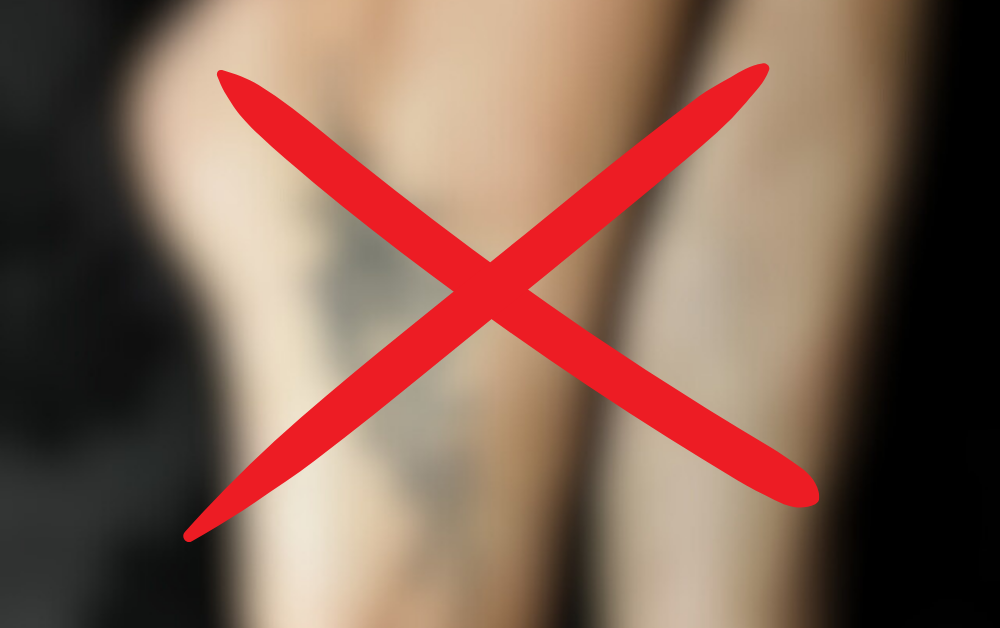The Foot Tattoo Deception: A Hidden Mark of Permanent Shame

An Important Editorial Correction
This article has been revised to correct a previous editorial oversight. While we may have featured tattoo designs in the past, this was a misstep that did not align with our platform’s core values. We are now reaffirming our principle that permanent body modification is a serious decision with physical, psychological, and spiritual consequences. For these reasons, we do not endorse or recommend getting tattoos. We thank you for your understanding as we ensure our content reflects our foundational principles.
The Fallacy of a “Private” Mistake
The primary appeal used to promote foot tattoos is the idea of secrecy. The logic is that since it can be easily hidden, it is a “private,” “personal,” and somehow less significant decision.
This is one of the most dangerous deceptions in the world of body modification. The desire to hide an act is a clear admission from one’s own conscience that the act is wrong. If it were truly a source of pride, why the need to conceal it? A tattoo, regardless of its location, is a permanent monument to a decision. A hidden tattoo is simply a permanent monument to a private shame. This article will expose this flawed logic and state the universal truths about all forms of tattooing.
The Unchanging Reality of a Permanent Wound
A tattoo’s visibility does not alter its fundamental nature. It is a willful act of wounding the body to inject foreign substances. This is true whether the tattoo is on your face or on the sole of your foot. The universal harms are always present:
- The Physical Consequence: The process involves repeatedly breaking the skin barrier, inviting the risk of serious infections, blood-borne diseases if equipment is not sterile, and painful, lifelong allergic reactions to the chemical inks.
- The Psychological Burden: The feeling of “regret” is a heavy one. A tattoo permanently marks you with the memory of a temporary feeling or a fleeting trend. The fact that it’s hidden doesn’t erase the knowledge of its existence; it only adds a layer of hypocrisy to the regret. The eventual desire for removal leads to an excruciatingly painful, expensive, and scarring process.
The Absolute Verdict That Sees All: The Islamic Prohibition
For a Muslim, the idea of a “hidden” sin is a contradiction in terms, for Allah sees all things, whether secret or public. The ruling on tattooing is absolute and is not affected by the tattoo’s visibility to other people.
- The Act Itself is Cursed: The Prophet Muhammad (peace be upon him) cursed both the one who gives a tattoo and the one who receives it. This is a major sin. The curse is on the act, not on its location or visibility.
- A Betrayal of the Body as a Trust (Amanah): Our bodies are a trust from Allah. We will be questioned about how we cared for this trust. Willfully damaging it with a needle and defacing its natural form is a clear betrayal of this responsibility.
- Altering God’s Creation (Taghyir Khalqillah): Tattooing is a prime example of changing the perfect form in which Allah created us for the sake of vanity, an act that is clearly condemned in Islam.
Compounding the Folly: The Inevitable Decay of Foot Tattoos
On top of the universal harms and the absolute spiritual prohibition, choosing the foot as a location only adds another layer of foolishness. Due to the constant friction from socks and shoes, foot tattoos are infamous for:
- Extremely Rapid and Ugly Fading: They blur, spread, and decay into a messy, unreadable stain faster than almost any other tattoo.
- Intense Pain: The foot is one of the most painful places to get a tattoo due to the thin skin and proximity to bone.
You are enduring extreme pain for a forbidden act that is guaranteed to turn into an ugly blemish you feel the need to hide. This is a multi-layered disaster.
Conclusion: Walk a Pure Path
A tattoo is not a private matter; it is a permanent mark of a regrettable decision, visible or not.
True beauty is not found in a hidden mark on the skin, but in the purity of a life lived in the open, in accordance with God’s guidance. Let your feet be known not for the shameful marks they bear, but for the righteous paths they walk—to the mosque, to your family, and to do good in the world.

